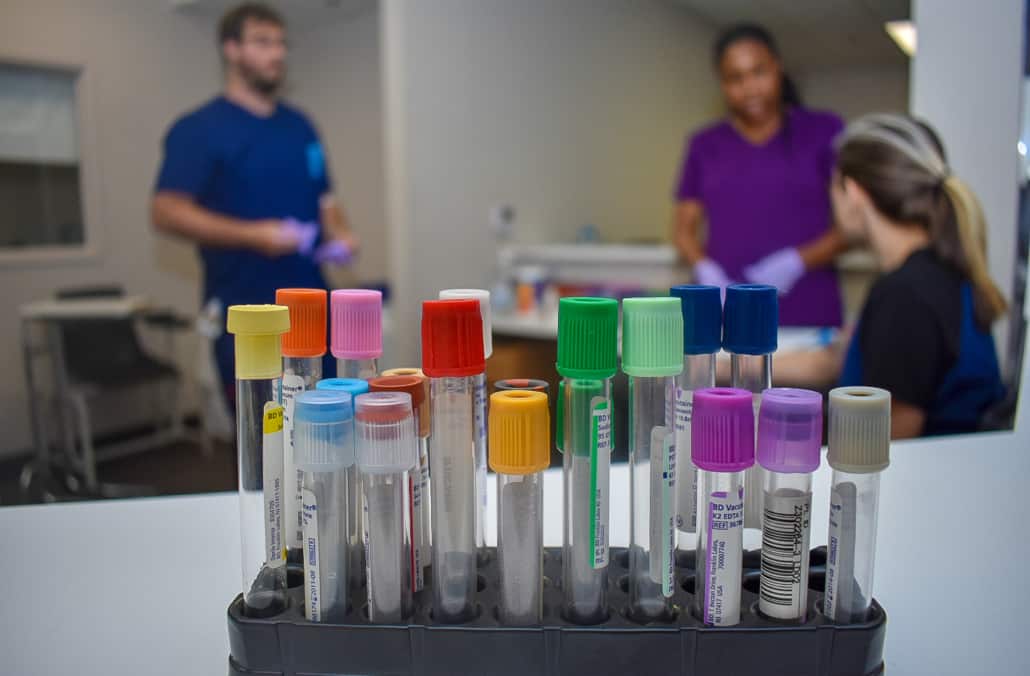When we speak of “order of draw” what exactly are we talking about?
In phlebotomy, this term has special meaning as it is the order in which certain tubes can be used. There are seven tubes which make up the order of draw.
They are listed by chemical additives that have been introduced to the tube by the manufacturer to perform a specific function when mixed with the blood.
CLSI Order of Draw
CLSI order of draw is as follows:
Sodium Polyanethol Sulfanate (AKA SPS)
Sodium Citrate
N0 Additive
Clot activator
Heparin (either sodium or lithium)
EthyleneDiamineTetraacetic Acid (AKA EDTA)
Potassium Oxalate with Sodium Fluoride
Color
Yellow
Blue
Red
SST
Green
Lavender
Grey
A Useful Order of Draw Mnemonic
Many phlebotomists use a mnemonic device to make the memorization process a bit easier. A mnemonic device is a phrase or saying that is easy to remember and relate back to in the future. It’s a great way to remember order of draw (OOD) because you can modify the sentence to be most helpful to you. In this example, the tubes that make the order of draw are identified by color.
Mnemonic Example:
Color
Yellow top tube (or anaerobic/aerobic bottles)
Blue (AKA Lt Blue)
Red
SST (AKA as Gold or Tiger top)
Green (either dark or light)
Lavender
Grey
Mnemonic
Young
Bodies
Really
Should
Get
Large
Grains
Prevent Cross Contamination
The reason the tubes are assigned this order is to prevent the cross-contamination of chemicals into other tubes which may cause errors in testing. This process is called reflux, which means the chemical can move from the tube and enter the needle. Once the next tube is activated it will have the previous chemical enter the tube, causing the contamination. You will need to study the tubes at your facility to determine which products are used for which test.
Order of Draw Bracelet
If the mnemonic device is not working, you may have heard of another option of buying an order of draw phlebotomy bracelet or other wearable. However, we do not recommend or encourage buying these phlebotomy bracelets because the OOD is something you need to know without relying on a bracelet.
As a licensed phlebotomist, it is not only important to know the order of blood drawing but also the correct procedure and standard for drawing that blood. At PhlebotomyU, we value education because we want to provide hospitals, facilities, and laboratories with the best CPT-1 phlebotomy graduates. Our program not only provides teaching in the classroom but also real-time experience in the field. We offer abbreviated classes, weekday and weekend phlebotomy training from 5 to 9 weeks. At end of training, students have hours of hands on experience making it easy to go from PhlebotomyU to a full time job.



